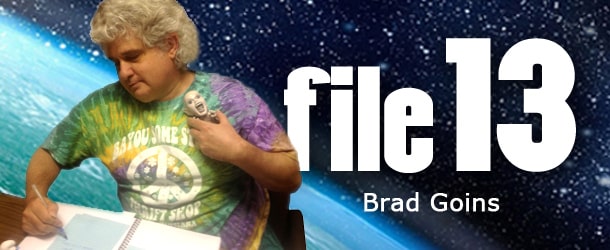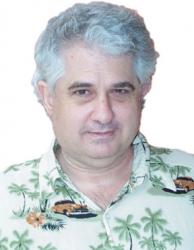The idea that people necessarily grow wise as they grow old baffles me as much as most commonplaces do. I think in vain of examples of old people who’ve told me something I consider wise. I recall with embarrassment the number of times I’ve seen old people fly into rages or rants over frivolous matters.
Then, I think with real squeamishness of the idea that I, who, at age 57, am probably at the stage at which I can be considered aged, might have gained something that would be considered wisdom.
The idea that I, who feel so unwise, should be considered wise, seems nonsensical.
What would I have to offer that would be considered wisdom? To narrow the scope a little … what is it I know now that I didn’t know when I was 25?
Well, I’ve learned that it’s almost always a bad idea to offer unsolicited advice. And when I write “almost always,” I mean “almost always.”
I’ve learned that it’s usually a bad idea to take the initiative to try to help others except in emergency situations. One usually doesn’t make other peoples’ lives better by stepping in and trying to help them. This is virtually always the case when the other people are experiencing something other than material problems. For the great crowd of people who torment themselves over psychological problems that may or may not be of great matter, the most one can do is hint that the help of a professional might be in order. Even that might be doing too much.
And then, on occasion, I address to people whose intelligence I respect a little speech that goes something like this:
“Don’t trust everyone. And especially, don’t ever trust people you don’t know well. That’s dangerous. Trust must be earned. In every case. No exceptions.”
This wisdom — if wisdom it be — is always rejected by everyone who hears it. People want to trust. They don’t want to hear about danger. And when they get hurt because they trusted someone who wasn’t worthy of trust, they certainly don’t want to hear about the mistake they made.
This, then, is one concern. If I, as an old person, had wisdom to offer, would anyone be interested in it or pay attention to it (much less recognize it as wisdom)?
But a bigger question concerns what it is that would make my learnings or observations things of wisdom. Perhaps they are, rather, practical suggestions about how one can get through everyday life with a minimal — or at least lessened — amount of trouble.
Aside from the fact that the kinds of advice I’ve described are somewhat abstract, I’m not sure they differ significantly from the kinds of information an experienced person might offer someone who’s looking for an apartment for the first time: remember that windows should have screens and stoves should heat up; written contracts are always binding, so read what you sign; some landlords meet their obligations to tenants, some don’t; if you don’t have money for that damage deposit and first month’s rent, you’d better figure out how you’re going to get it; and so forth.
One of the problems with commonplaces is that the people who use them don’t think them through. No one ever stops to ask: does the slogan match up with my experience?
Another big problem with any commonplace about age bringing wisdom is the preposterous notion that ordinary people are capable of knowing what wisdom is and recognizing it.
The idea that age brings wisdom seems to assume the silly notion that people who aren’t old — and who therefore have no experience or notion or wisdom — can somehow identify the wisdom they know nothing about when they’re in the presence of an old person — just as one who had no experience of heat might be able to identify it if he found himself standing in front of a blazing fireplace.
Greater people than I have looked askance at the popular notion that age must bring wisdom. The great 17th century mathematician and theologian Blaise Pascal, who died at 39, didn’t live long enough to know whether he would one day consider himself a wise old person. But he was precocious, and at some point in his 30s, he formulated the idea of “learned ignorance.”
It works like this: A young and energetic scholar who reads a great many serious books and thinks through what he reads will reach the point where he feels he knows everything and is certain about everything. But if he continues to be a serious scholar beyond this point, he will gradually learn that there are things he will not live long enough to learn about and things he will not be clever enough to figure out. If he goes full circle, he will move from the youthful thought “I know almost everything” to the informed, mature thought “I know very little.”
A century earlier, Michel de Montaigne felt he was well past the halfway point of his life when, at age 47, he saw his Essays (Les Essais) published. In them, he argued for his theory of ataraxia: the notion that human life was too complicated for human beings to understand and that the wisest response to it was to remain in a state of conscious uncertainty. In the essay “In Defense of Raymond Sebond,” he advanced his personal motto — “What do I know?” (Que sais-je?)
Bertrand Russell was 66 when he wrote his great treatise on skepticism Human Knowledge: Its Scope and Limits in 1948. It contained these statements: “All human knowledge is uncertain, inexact and partial. To this doctrine we havenot found any limitation whatsoever.”
John Stuart Mill was 66 in 1873 when he wrote in his essay “Utility of Religion” that “Human existence is girt round with mystery; the narrow region of our experience is a small island in the midst of a boundless sea.”
The “Venerable Bede,” considered the father of English history, was 59 when he wrote in his Ecclesiastical History of the English People that human life is like a bird that flies into a window at one end of a “mead hall” during a nighttime party, then flies out another window at the other end. In the brief interval when he’s in the hall, the bird is surrounded by light. But he comes into the hall from darkness and to darkness he quickly returns.
Certainly the most damning indictment of the notion of the generic wise old man was the one T.S. Eliot wrote for the “East Coker” section of his Four Quartets in 1940, when he was 52:
Do not let me hear
Of the wisdom of old men, but rather of their folly,
Their fear of fear and frenzy, their fear of possession,
Of belonging to another, or to others or to God.
The only wisdom we can hope to acquire
Is the wisdom of humility: humility is endless.
Eliot gives us old people the option of experiencing the wisdom of humility: an option that certainly sounds better than the wisdom of uncertainty (even though I imagine they are much the same thing).
Eliot’s words might seem unduly severe if we couldn’t put them in perspective with Shakespeare’s harsh description of an old man’s long, painful and eventually fatal realization that he is a fool in the play King Lear, first performed in 1606 when Shakespeare was 42.
I imagine that somewhere in the thousands of pages of dialogues, Plato’s Socrates, based on the historical figure who was sentenced to death by the leaders of Athens at the age of 71, delivers a definition of wisdom. Here I’ll just say that Socrates repeatedly says that he and his disciples are always on the mission of figuring out how to live well.
Judging from my experience, I’d say that living well is 90 percent about avoiding the choice to live poorly. Our lives are rendered inadequate when we make poor life-altering choices that are hard to get out of. We take the bad job or fail to take the good job. We stay in the bad job or leave the good job. We get in a relationship when we have no good reason to. We marry the bad person or fail to marry the good person. We stay in the bad marriage or get out of the good marriage. We buy a house or a car when we can’t afford to. We try to spend ourselves to happiness. We seek to find satisfaction or contentment in entertainment.
We need wisdom more when we’re 23 than when we’re 73. Many 73-year-olds who turn off the television now and then spend time wondering, “If only I hadn’t done that. What if I’d done this instead?”
Perhaps by the age of 73, some people have acquired the wisdom of resignation — resignation to their past choices and the consequences of those choices. And if they’ve reached the age of 73 without having wisdom, that’s no great matter. Without question, the ones who don’t have wisdom are the very ones who’ll be most certain they’re full of it.
















Comments are closed.